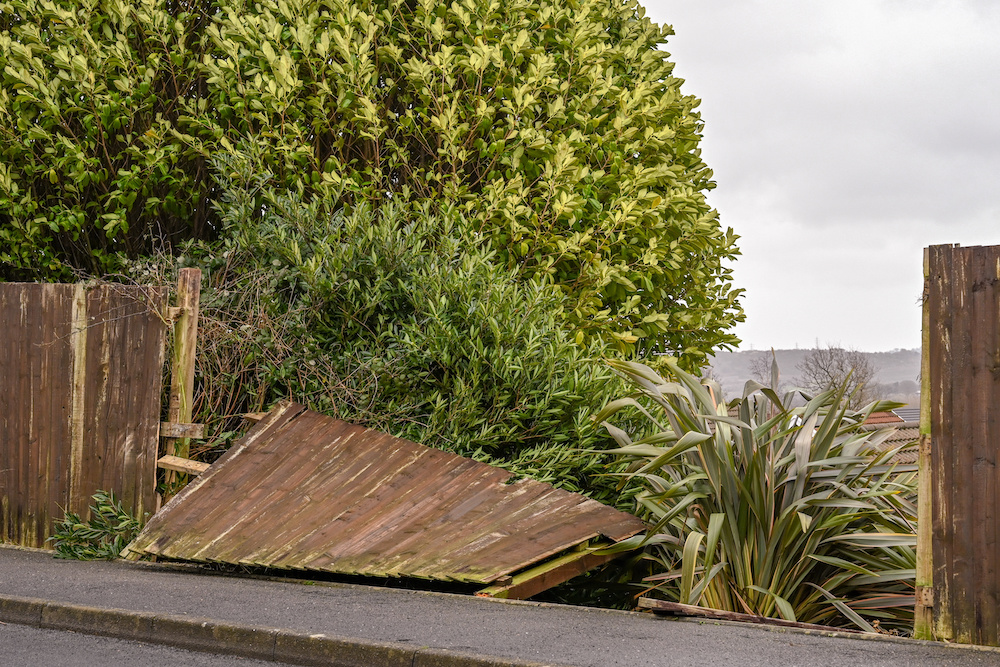As summer turns to fall, we know that winter is just around the corner. Summer heat and sun can do a number on fencing – from sun bleaching to general wear and tear. But winter is the most brutal season on fences. Here’s how winter can ruin your fences.
Moisture Means Damage
Winter brings snow and wet weather to most of the country. For wood fencing, this can cause warping and cracking. It also can cause water damage due to rot. Moisture also can damage the paint.
Unsealed concrete fences aren’t immune to moisture damage. The water can seep into the concrete and cause the concrete to crack or spall. Spalling is where the concrete starts to fall away, and the steel reinforcement is exposed.
Rust Damage
When steel reinforcement in concrete is exposed, this means it is open to rust. Not only is rust ugly, but it can weaken the metal. Left long enough, and rust can cause fencing to fail and collapse completely.
If you have a metal fence that is susceptible to rust, like iron, you will need to take care that any protective coating is reapplied regularly.
Inspect it before winter and see if the protective coating has been worn away. If it has, reapply before the temperatures drop.
Freezing Soil
When water freezes, it expands. I’m sure we have all seen that when putting water in our freezer. When wet soils freeze, it can cause them to expand and shift too.
This is thanks to the water in the soil. The soil itself isn’t expanding, just the water between the soil particles.
What does this expanding soil mean for fences? It can spell disaster. Whole fence posts can become unstable or end up crooked.
This makes the whole fence more susceptible to damage from winds or other forces. It also ruins the look of the fence with sagging and uneven fence lines. Brick or stone fencing can topple.
Changing Temperatures
Winter weather isn’t consistently cold. Day by day, the temperatures change – often quickly and by up to 20-30 degrees.
These big temperature swings can cause significant damage to fences. Wood can warp with major temperature shifts.
If moisture is involved, the shifting temperatures can cause even more damage. As we explained above, the changing temperatures combined with moisture can cause damage to the fence directly and cause the soil to shift and expand.
Precast Concrete Stands Strong Against Winter
Choose American Precast and go with a precast concrete fence to prevent winter damage.
Most of the winter issues precast concrete fencing can face, like damage from moisture, can be eliminated by applying a water repellent. As long as moisture can’t seep into precast concrete, it doesn’t do damage to it.
If your precast concrete fence does experience some damage due to shifting and expanding soils, the repair is much easier.
Brick or stone fencing that has collapsed due to expanding soils will need to be reconstructed piece by piece. With precast concrete, it is a simple matter to replace crooked posts and damaged panels. Contact us today for a free consultation.







